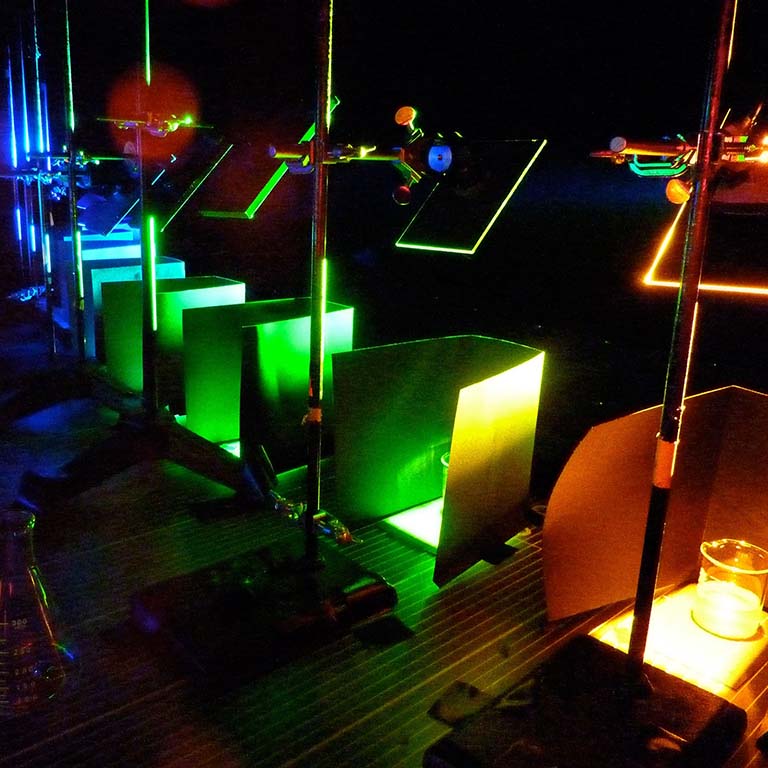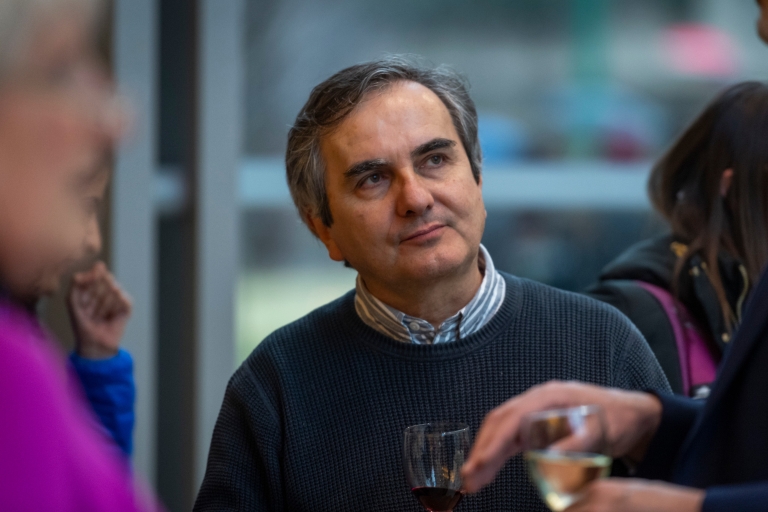[View original story from source]
In February, Indiana University signed formal partnerships to engage in research collaboration and student exchange with Sorbonne University, one of France's top-ranked research universities. A month later, one of the founding partnerships between the institutions has already borne new fruit.
A study led by David Kehoe of IU Bloomington and Frédéric Partensky of Sorbonne University was recently published in the Proceedings of the National Academy of Sciences, or PNAS. The work, which explains for the first time a key part of a process that allows a widespread ocean bacterium to efficiently convert sunlight into oxygen, is the most recent in a streak of high-profile publications to emerge from a collaboration between their labs over the past 12 years.
"This work is an example of the great partnership between Indiana University and the Sorbonne University to develop research and exchanges between these two leading institutions," said Guillaume Lacroix, the French consul general in Chicago. "It is an agreement that will strengthen the excellence of research and collaboration for the benefit of the academic and student communities. It also provides an opportunity for economic exchanges between France and Indiana, in the fields of innovation, training and investment."
"Great research requires great collaborations," added Rick Van Kooten, vice provost for research and associate vice president for research at IU. "The collaboration between the Kehoe Lab and researchers affiliated with Sorbonne University has been a foundational model for our new partnership, and I'm confident this work is the first of many exciting new discoveries to emerge from the agreements between our institutions."
A molecular geneticist and professor in the IU Bloomington College of Arts and Sciences' Department of Biology, Kehoe studies the molecular processes through which photosynthetic marine plankton sense and respond to changes in their environment. A biologic oceanographer at the Sorbonne-affiliated Biological Research Station of Roscoff, Partensky focuses on identifying the ecological niches and physical locations that these organisms occupy across the world's oceans. Together, they're drawing upon new molecular and ecological data to gain insights into both topics.



 The College of Arts
The College of Arts